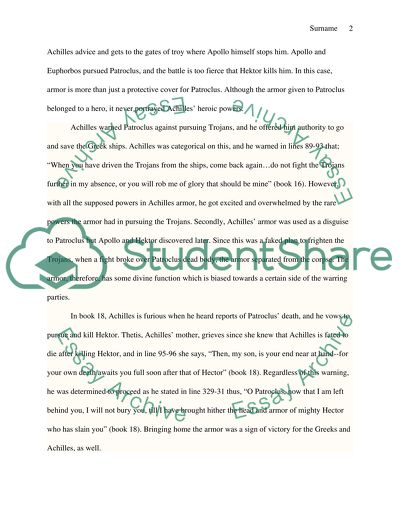Discuss the Theme of Armor in Books 16 & 18 of Homer's Iliad Term Paper. Retrieved from https://studentshare.org/literature/1443952-discuss-the-theme-of-armor-in-books
Discuss the Theme of Armor in Books 16 & 18 of Homer'S Iliad Term Paper. https://studentshare.org/literature/1443952-discuss-the-theme-of-armor-in-books.


